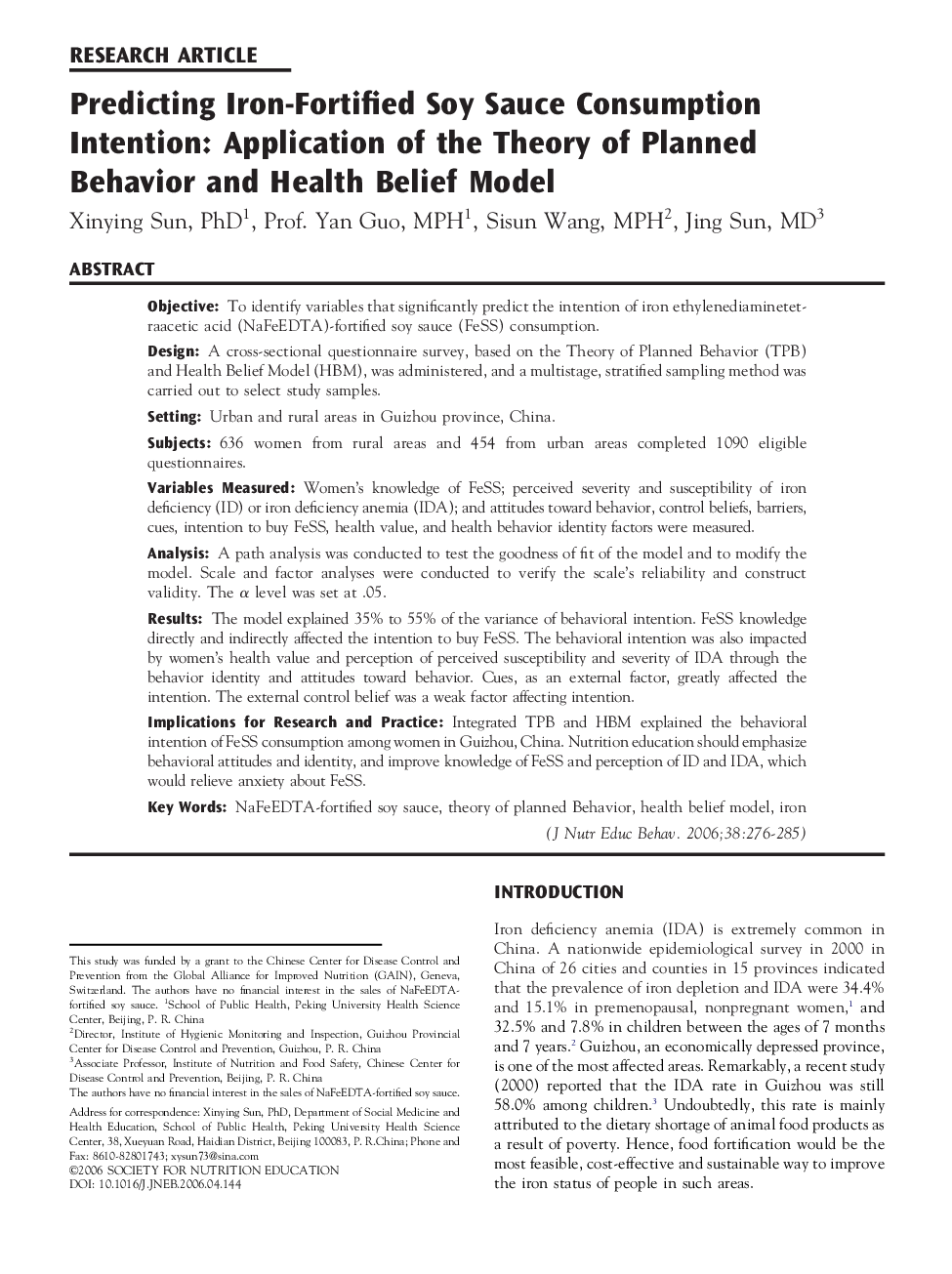| کد مقاله | کد نشریه | سال انتشار | مقاله انگلیسی | نسخه تمام متن |
|---|---|---|---|---|
| 363377 | 620673 | 2006 | 10 صفحه PDF | دانلود رایگان |

ObjectiveTo identify variables that significantly predict the intention of iron ethylenediaminetetraacetic acid (NaFeEDTA)-fortified soy sauce (FeSS) consumption.DesignA cross-sectional questionnaire survey, based on the Theory of Planned Behavior (TPB) and Health Belief Model (HBM), was administered, and a multistage, stratified sampling method was carried out to select study samples.SettingUrban and rural areas in Guizhou province, China.Subjects636 women from rural areas and 454 from urban areas completed 1090 eligible questionnaires.Variables MeasuredWomen’s knowledge of FeSS; perceived severity and susceptibility of iron deficiency (ID) or iron deficiency anemia (IDA); and attitudes toward behavior, control beliefs, barriers, cues, intention to buy FeSS, health value, and health behavior identity factors were measured.AnalysisA path analysis was conducted to test the goodness of fit of the model and to modify the model. Scale and factor analyses were conducted to verify the scale’s reliability and construct validity. The α level was set at .05.ResultsThe model explained 35% to 55% of the variance of behavioral intention. FeSS knowledge directly and indirectly affected the intention to buy FeSS. The behavioral intention was also impacted by women’s health value and perception of perceived susceptibility and severity of IDA through the behavior identity and attitudes toward behavior. Cues, as an external factor, greatly affected the intention. The external control belief was a weak factor affecting intention.Implications for Research and PracticeIntegrated TPB and HBM explained the behavioral intention of FeSS consumption among women in Guizhou, China. Nutrition education should emphasize behavioral attitudes and identity, and improve knowledge of FeSS and perception of ID and IDA, which would relieve anxiety about FeSS.
Journal: Journal of Nutrition Education and Behavior - Volume 38, Issue 5, September–October 2006, Pages 276–285